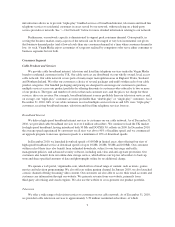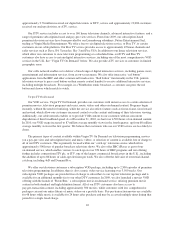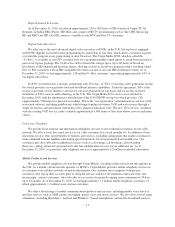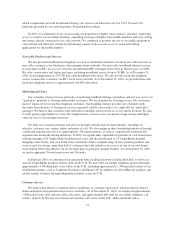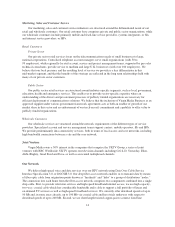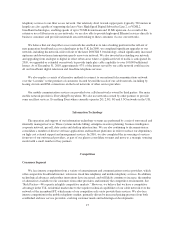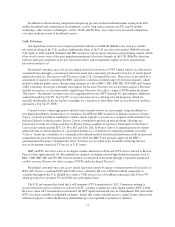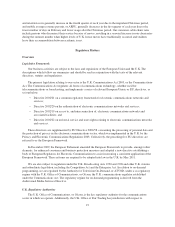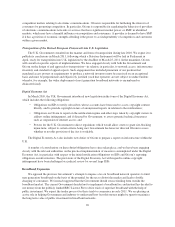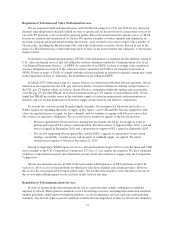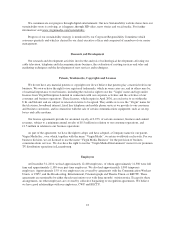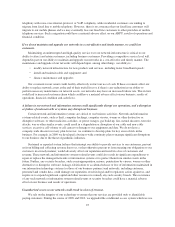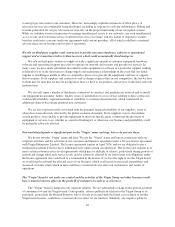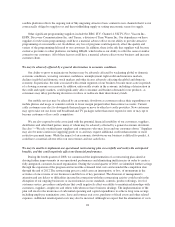Virgin Media 2010 Annual Report Download - page 22
Download and view the complete annual report
Please find page 22 of the 2010 Virgin Media annual report below. You can navigate through the pages in the report by either clicking on the pages listed below, or by using the keyword search tool below to find specific information within the annual report.and retention costs generally increase in the fourth quarter of each year due to the important Christmas period,
and mobile average revenue per unit, or ARPU, generally decreases in the first quarter of each year due to the
fewer number of days in February and lower usage after the Christmas period. Our consumer cable churn rates
include persons who disconnect their service because of moves, resulting in a seasonal increase in our churn rates
during the summer months when higher levels of U.K. house moves have traditionally occurred and students
leave their accommodation between academic years.
Regulatory Matters
Overview
Legislative Framework
Our business activities are subject to the laws and regulations of the European Union and the U.K. The
descriptions which follow are summaries and should be read in conjunction with the texts of the relevant
directives, statutes and regulations.
The primary legislation relating to our sector is the U.K. Communications Act 2003, or the Communications
Act. The Communications Act regulates all forms of communications technology, whether used for
telecommunications or broadcasting, and implements a series of relevant European Union, or EU, directives, as
set out below:
• Directive 2002/21 on a common regulatory framework for electronic communications networks and
services;
• Directive 2002/20 on the authorization of electronic communications networks and services;
• Directive 2002/19 on access to, and interconnection of, electronic communications networks and
associated facilities; and
• Directive 2002/22 on universal service and users rights relating to electronic communications networks
and services.
These directives are supplemented by EU Directive 2002/58, concerning the processing of personal data and
the protection of privacy in the electronic communications sector, which was implemented in the U.K. by the
Privacy and Electronic Communications Regulations 2003. Collectively, the preceding five EU directives are
referred to as the European Framework.
In December 2009, the European Parliament amended the European Framework to provide, amongst other
elements, for enhanced consumer and business protection measures and adopted a new directive establishing a
body of European Regulators for Electronic Communications to assist in ensuring a consistent application of the
European Framework. These reforms are required to be adopted into law in the U.K. by May 2011.
We are also subject to regulation under the U.K. Broadcasting Acts 1990 and 1996 and other U.K. statutes
and subordinate legislation, including the Competition Act and the Enterprise Act. In relation to on-demand
programming, we are regulated by the Authority for Television On-Demand, or ATVOD, under a co-regulatory
regime with the U.K. Office of Communications, or Ofcom, the U.K. communications regulator established
under the Communications Act. The regulatory regime for on-demand programming is derived from the
Audiovisual Media Services Directive.
U.K. Regulatory Authorities
The U.K. Office of Communications, or Ofcom, is the key regulatory authority for the communications
sector in which we operate. Additionally, the U.K. Office of Fair Trading has jurisdiction with respect to
19


